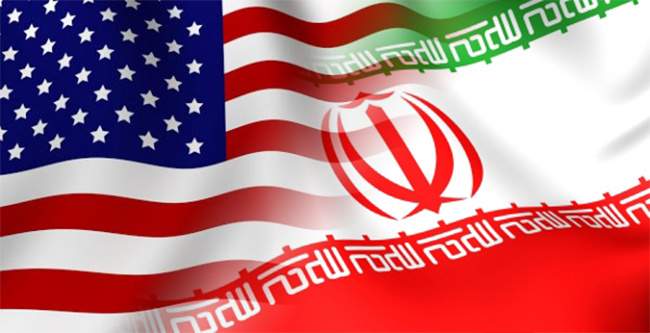New Tracks in US-Iran Diplomacy

Iran and the United States must search for new tracks in their bilateral diplomacy, above and beyond the nuclear accord. This historical necessity stems from the plethora of Middle East issues, including terrorism, energy security, narco-traffic, Persian Gulf stability, and the like, forming a cluster of parallel if not shared interests between Tehran and Washington, warranting a sustained process of diplomatic dialogue.
Unfortunately, having demonized Iran at the UN podium recently, the US President Donald Trump is threading the wrong waters by his relentless assault on the nuclear agreement and leveling severe criticisms of Iran's external behavior, thus making it nearly impossible to pursue normal diplomacy between the two countries. Due to report to the US Congress on the status of the nuclear agreement in mid-October, Trump has evinced a growing tendency to decertify the agreement, i.e., declare Iran to be in a state of non-compliance in direct contradiction with the various reports by the UN's atomic agency, which would certainly set back the US-Iran relations to the pre-agreement status quo ante, in other words, a manufactured nuclear crisis.
But, not everyone in the Trump administration subscribes to the distorted views of Iran by the Oval Office's occupant, and there are reports of deep fissures over Iran, in light of the recent interviews by the Secretary of State Rex Tillerson readily admitting that Iran is in "technical compliance" with the accord; Tillerson has reportedly counseled the White House to report to Congress that Iran is in compliance, contrary to the hawkish position of the US envoy to the UN, Nikki Haley, who apparently has upstaged Tillerson on certain foreign policy issues. Yet, Tillerson is not alone and other important voices in the Pentagon and National Security Council have echoed his sentiment on Iran, which is nuanced with vocal criticisms of Iran's regional behavior, such as by accusing Iran of meddling in Yemen, thus giving the false impression that the current Yemen crisis is caused by Iran and not Saudi Arabia, US's close ally in the region.
Still, rhetoric aside, US's Middle East policy under Trump is not altogether devoid of certain merits. Trump has wisely refrained from a major military intervention in Syria and has been sending observers to the Astana peace talks, while endorsing the Iran-Turkey-Russia proposed de-escalation zones. Nor is Trump adamant about the removal of Syria's President Bashar al-Assad, who is winning the war against the foreign-backed terrorists in his war-torn country with the help of Russia, Iran, and Lebanon's Hezbollah. Despite internal pressures over the allegations of Russian interference in the US elections, Washington and Moscow are trying to repair their relations, which bodes well for the future of Syria.
From Iran's vantage point, moving closer to Turkey, a NATO country, with whom Iran shares similar concerns about the present rumblings of an Independent Kurdistan, maintaining national boundaries is of utmost importance, requiring a regional diplomacy aimed at preventing the (un)intended consequences of Kurdish irredentism, imperiling regional peace, in light of President Rouhani's recent warning that an independent Kurdistan could trigger "many wars." Certainly, US, which has been a stakeholder in Iraq's security since the 2003 invasion, should be logically interested in holding security dialogue on Iraq with Iran, as it has already happened twice a decade ago. The disintegration of Iraq by Kurdish separatism is an unwanted scenario that can have spill-over effects on the entire region and benefit the terrorist groups, in other words, a nightmare even by the US's own standards.
Furthermore, there are troubling signs of security deterioration in Afghanistan as well, where some of the ISIS terrorists have been relocated, and this constitutes yet another area for potential bilateral discussions between Tehran and Washington. Supporting the same political horses in Baghdad and Kabul, US and Iran should be able to pursue a nuanced diplomacy that takes into consideration the fact of clashing interests co-existing with coinciding interests, using the latter as zones of agreement in order to shrink the areas of disagreement. An enlightened approach to this complex milieu demands 'smart diplomacy' on both sides however, and yet unfortunately, it is far from clear that Washington, which has its hands full with other crises and has made drastic cuts in its diplomatic arsenal, is prepared to tackle this historic necessity.

